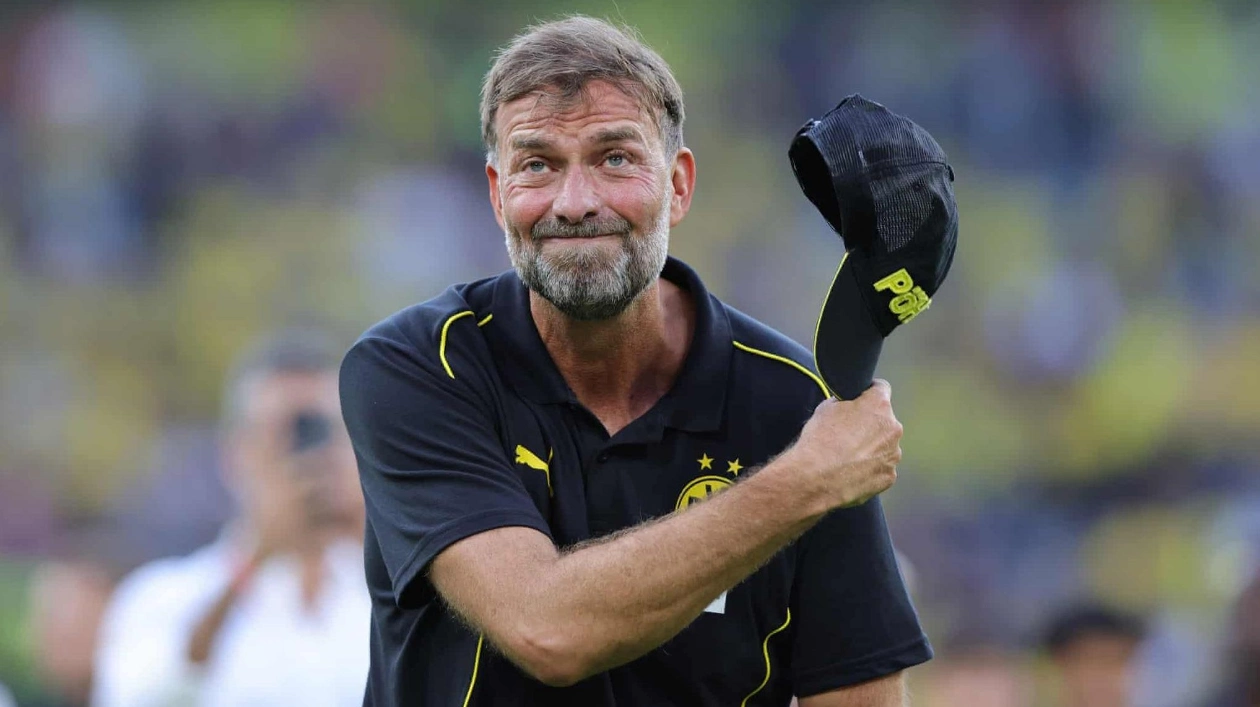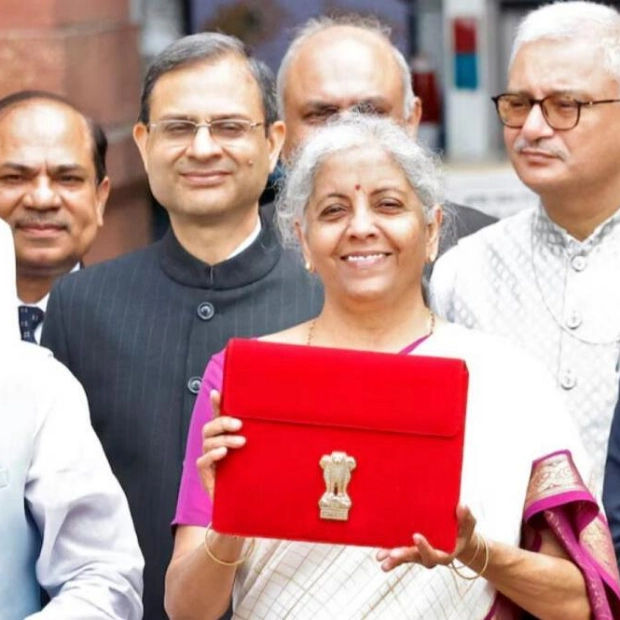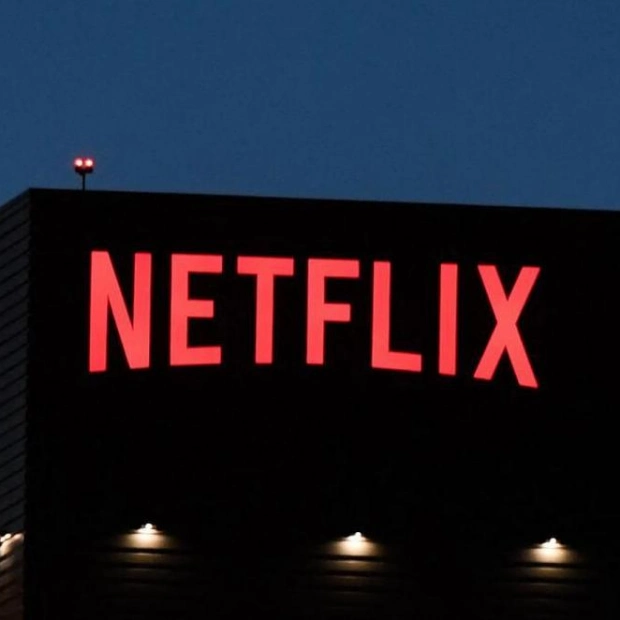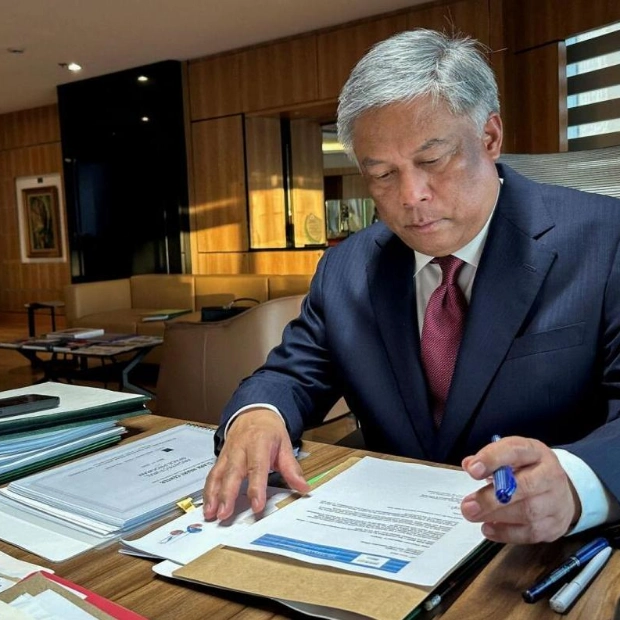Jürgen Klopp's enthusiasm knows no bounds. His fervor for football remains undiminished. Klopp is eager to collaborate with exceptional football talent. Klopp is set to join Red Bull as their global soccer head. One statement stands out from the rest. This isn't to question the authenticity of the joint declaration by Klopp and the energy drink titan on Wednesday morning, detailing his new position with the corporate behemoth. Quite the opposite: this role is brimming with passion, excitement, and connection. Klopp storming through the boardroom post-seminar success. Being swarmed by ecstatic data scientists. Energizing Microsoft Teams calls with his iconic fist pumps. The actuality might be somewhat more mundane. Much of the immediate analysis of Klopp's choice seemed to view this as a predictable pivot back to management: possibly at one of the Red Bull clubs, or perhaps as the German national team manager, a position Klopp is reportedly permitted to take if it ever becomes available. But if a return to coaching is the main objective, this approach seems peculiar. The national team role is currently held by Julian Nagelsmann, who appears content to continue at least until the 2026 World Cup, if not longer. Similarly, despite Pepijn Lijnders' struggles at RB Salzburg, it's hard to envision Klopp willingly replacing his former assistant. Perhaps the Leipzig job will open up at some point. But with the world's clubs at his disposal, why limit oneself? Instead, this feels like something one does when unsure of their next move. Apart from the grand title, the job description seems reassuringly ambiguous. “I want to observe, feel, and determine what is beneficial for football,” he stated. “Developing football slightly as well.” This isn't a sacred mission statement like “turning doubters into believers.” The most revealing aspect of Klopp's justification for taking the job is his desire to “learn anew,” to relish football as a purely intellectual pursuit, free from league tables' tyranny or the obligation to explain himself on camera multiple times a week. This could herald a revamped coaching career, Klopp 4.0 armed with new strategies. Or it could mark the beginning of an extended period in football administration, generating unconventional ideas twice a year, a move dubbed the “pivot to Wenger.” This addresses the football rationale. But there are other facets to this decision, as the announcement made clear. Among Borussia Dortmund fans, there is outrage at their iconic coach aligning with their ideological foe, just a month after his emotional return to the Signal Iduna Park dugout for Lukasz Piszczek and Jakub Blaszczykowski's testimonial. Liverpool fans, reassured by reports that Klopp planned to take at least a year's break, are bewildered by his swift transition. Meanwhile, Liverpool's rivals' fans revel in a sort of sordid glee: the notion that accepting the energy drink dollar is a colossal self-own, an act of rank hypocrisy, the overdue unmasking of one of English football's most fraudulent messiahs. Not all of this analysis warrants serious consideration. There are genuine evils in football, and the Red Bull model—while somewhat tacky—barely registers. Above all, much of the disappointment and schadenfreude fails to engage with Klopp's reality, instead fixating on the caricature created around him: the age-old conflation of sporting virtue with the actual thing. A few minutes watching German TV—where Klopp endorses everything from beer to Peloton bikes to investment schemes—will give you a good sense of his stance on capitalism. The idea that this millionaire in a tracksuit, who spent nine years working for American financiers, might be an anti-corporate revolutionary was always more fantasy than fact. And to Klopp's credit, the role of savior or moral compass was never one he sought or demanded. Indeed, he expressed this in his first press conference as Liverpool manager. “If you want to portray me like Jesus but then the next day say ‘no, he can't walk on water,’ then we have a problem,” he said. Perhaps the real issue is English football's tendency—predominantly an Anglocentric phenomenon—to place its coaches on absurd moral pedestals, even granting them quasi-deific status on flimsy pretexts. Arsène Wenger and early Pep Guardiola certainly fit this category. Marcelo Bielsa, despite his protests, continues to be venerated as a kind of gnomic public intellectual by those who've never met one. Even the moderately talented Ange Postecoglou seems to attract a significant cult following, lured in by his outsider status, fortune-cookie wisdom, and impeccable good-bloke vibes. Klopp, for his part, has spent too much time worshipping an actual god to entertain notions of his own divinity. Perhaps he underestimates the devotion he inspires, the extent to which people need him—for whatever reason—to represent something more. But he's not that guy. Nobody is; nobody ever was. Klopp isn't joining Red Bull to do the lord's work. But he may, in some small way, help English football shake off its god delusion.

Text: Lara Palmer
10.10.2024
Klopp's move to Red Bull sparks excitement, confusion, and debate among football fans and analysts.





